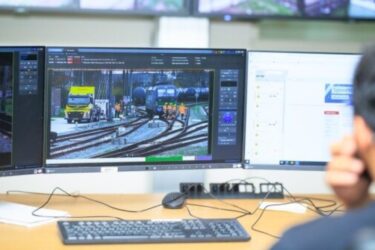While digital cameras have very little direct importance to corporate IT, there are probably some lessons to be learnt from the evolving situation (although I’m not sure what).
The recent announcement that Kodak are to make up to 15,000 people redundant around the world, largely because they are to stop selling film cameras, but also we must assume because the advent of the digital camera has reduced the demand for printing materials. However I fear that this is hiding a more common problem, the end of a product life cycle. Kodak pioneered the ill-fated APS camera system and must have invested heavily in it. There were significant sales for a few years, but APS failed to take off and sales simply stalled, which will account for some of the lay-offs. The first lesson then is not to introduce a new technology when a better one is just around the corner!
While professional digital cameras have a role to play, it is the development of digital replacements for the "point-and-shoot" pocket cameras that has created the bulk market. That in turn is a spin-off from the domestic PC, without which the digital camera would have remained a specialist, low volume product. The problem now however is the same one that faces the PC and mobile phone markets, which is how to generate a further market. At the moment this is not too difficult because there is such a rapid rate of improvement in price performance, but it may not be so easy to maintain future growth.
Few will admit it but digital cameras are a big disappointment to many, if not most, users; they have serious shortcomings. They are quite difficult to use; like mobile phones they are far too complex, while the combination of a complex camera and complex PC software is discouraging to the less technically minded masses. Downloading from the camera, simple processing of the images is not too difficult but printing is! Prints made on a PC printer are a lot more expensive than those processed from negative films, although this can be offset by selective printing to some extent. Digital cameras are also irritatingly slow. An alternative is to avoid prints and to use PC based presentations, which is as anti-social as the old 35mm slide projectors, without the quality.
There are some very expensive digital cameras (I have been looking enviously at a Cannon SLR which would use the same lenses as my EOS film camera) which nevertheless give some encouraging pointers to the future. These have an image the same size as a 35mm camera (the CCD in normal digital cameras is smaller than the 35mm image)and are fast in operation. It follows that it won’t take many years before Cannon, Nikon, etc. are producing products priced akin to the current range of film cameras. The question is however whether users will still be keen enough to follow the mobile phone and PC markets and buy regular replacements? The second lesson then is not to get involved with gimmicks; the simpler the better! Search for improvements in speed and quality, not yet more unusable features.
There is one other feature of a digital camera that needs some care, the "digital zoom". This is simply a cropping of the image inside the camera. Since most users will extract the images to a PC, cropping can be far better done then using software; unless the images are sent directly to a printing lab, with no processing, don’t ever use digital (as opposed to optical) zoom.
The cameras themselves are one thing, but impact on the service industry must be considered next.< BR>
Martin Healey, pioneer development Intel-based computers en c/s-architecture. Director of a number of IT specialist companies and an Emeritus Professor of the University of Wales.








